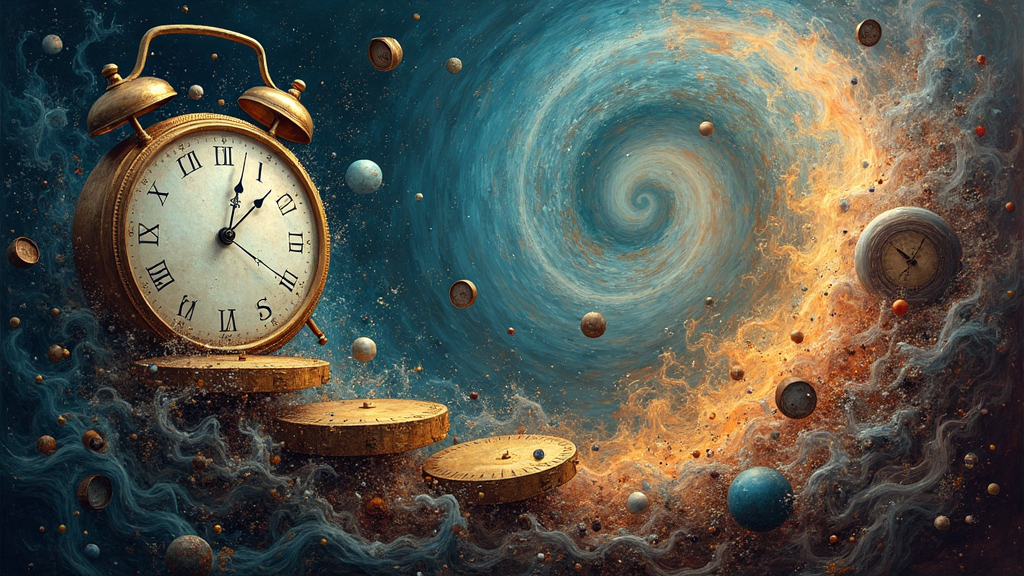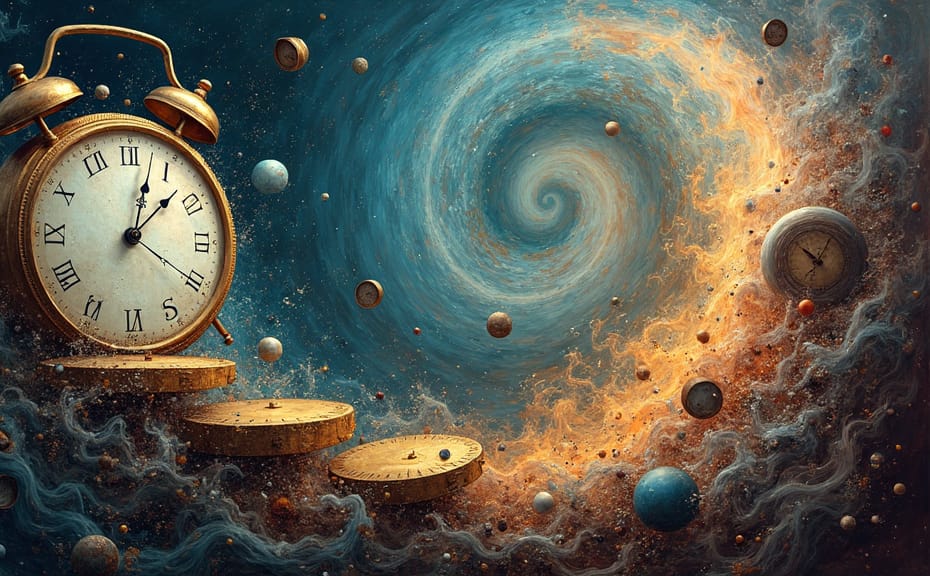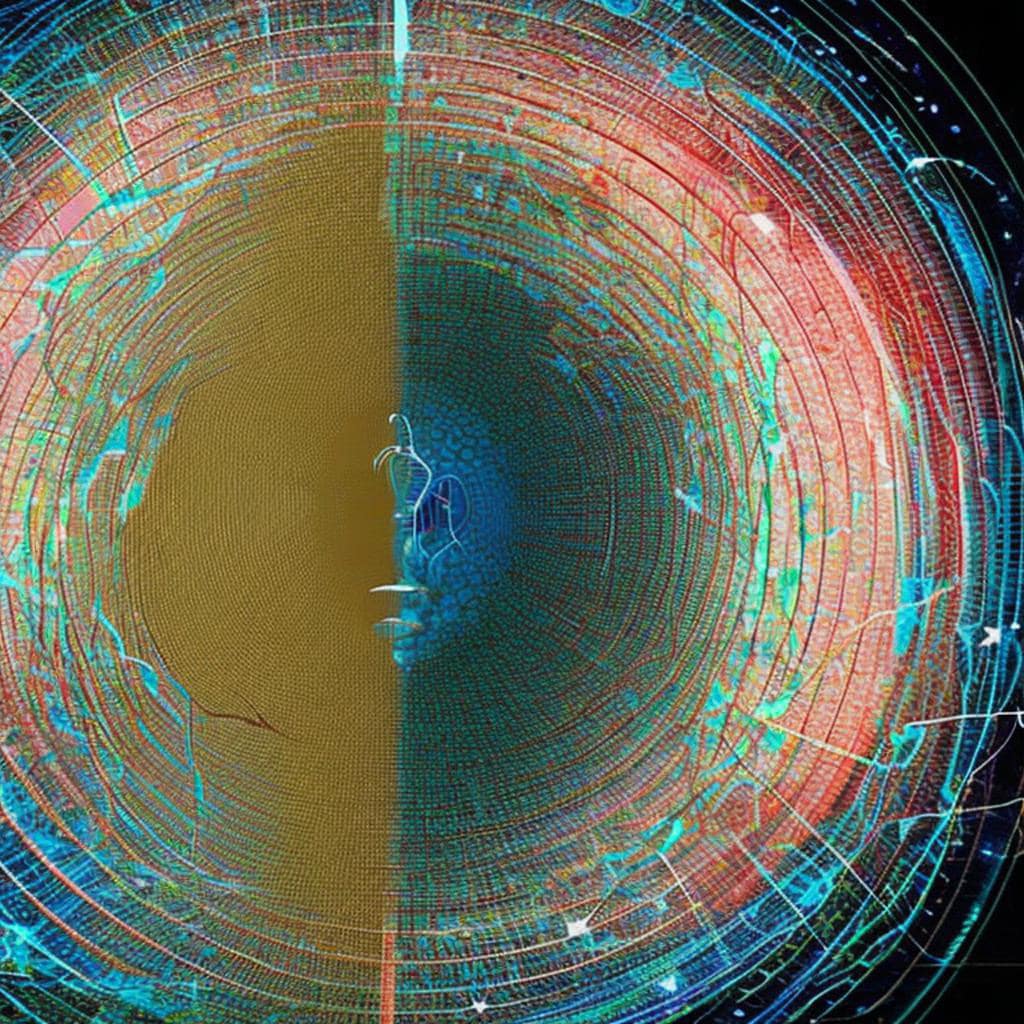The Paradoxes Of Time Travel
Time travel remains one of the most intriguing subjects in science and philosophy. At first glance, it sounds like the stuff of science fiction, yet many theories explore its possibility and the paradoxes it introduces. This article examines various time travel conundrums while explaining the ideas behind them, so readers can enjoy a clear exploration of one of the most debated topics in modern thought.
Exploring the Paradoxes of Time Travel
The concept of traveling through time often leads to puzzling situations that raise more questions than answers. Many scenarios make us wonder if changing events in the past could alter the future in unexpected ways. These paradoxes challenge our understanding of cause and effect. They invite us to reconsider how time itself works and how actions could have consequences that ripple into different periods.
While popular culture often portrays time travel as glamorous and adventurous, the real theoretical implications are complex. Discussion usually centers on problems like whether one can affect prior events or whether the timeline remains fixed regardless of any interference. Examining these paradoxes can lead us to appreciate that time might not be as straightforward as our experiences make it seem.
Fundamentals of Time Travel Concepts
Before jumping into the paradoxes, it helps to understand some basics. Time travel theories vary greatly. Some suggest that the past, present, and future exist simultaneously and that moving between them is merely a matter of navigating a complex landscape. Others believe that time is like a straight line, making any interference in the past cause a chain reaction in the future.
Many theoretical models rely on ideas from physics. Concepts such as wormholes, closed time-like curves, and general relativity form the backbone of serious academic discussions about time travel. These models employ mathematics and physical laws as tools to challenge centuries-old assumptions. Even though clear evidence may be lacking, the debates offer insights into the very structure of the universe.
Understanding these foundational ideas enables us to approach time travel with a balanced perspective. Both scientific and philosophical viewpoints contribute to an overall picture that is as puzzling as it is captivating. Whether or not time travel is ever achievable, discussing its implications enriches our grasp of reality.
Quick Guide to Understanding Time Travel Paradoxes
Getting a handle on time travel paradoxes can feel like stepping into a maze. Here’s a straightforward guide that outlines some of the main points to consider:
- Define the Paradox: Clarify what aspect of time travel behavior seems contradictory. It might involve altering past events or disrupting a timeline.
- Explore Theoretical Models: Look into established scientific theories that discuss these phenomena, from Einstein’s theories to modern cosmology.
- Consider Logical Implications: Ask what would happen if events in the past were changed. Would there be a split in the timeline, or would everything seamlessly adjust?
- Check Philosophical Arguments: Many paradoxes have been debated by philosophers. Thinking about free will versus determinism can provide additional layers of understanding.
- Examine Real-World Metaphors: While time travel is theoretical, drawing comparisons with everyday cause and effect can be enlightening.
This list offers a roadmap through a subject that is as intellectually challenging as it is fascinating. Each step provides a basis for discussions that have engaged scientists and thinkers for decades.
Challenges and Considerations in Theories of Time Travel
Alongside the intriguing possibilities, the theories of time travel come with several challenges that stir debate. These obstacles highlight potential issues that might arise if time travel were possible. Each challenge requires careful thought and explains why many remain skeptical about the practicality of moving backward or forward in time.
Causality Violations
One major dilemma is the potential violation of causality, a basic principle that ensures every effect has a specific cause. If time travel allowed a person to act in the past, it might create a loop where the cause and effect become tangled. For instance, if an event in the past is altered, it could lead to changes that contradict the very action that initiated the change.
This kind of paradox raises questions about the consistency of natural laws. Does the universe have built-in safeguards to prevent these occurrences, or can an intervention truly reset the timeline? The debate over causality remains at the core of time travel discussions.
Temporal Stability
Another significant consideration is whether the timeline itself is stable or prone to disruption. Some theories argue that events are self-correcting. If a change is introduced in the past, natural forces may work to adjust subsequent events so that the overall sequence of history remains intact.
This idea, sometimes called the ‘Novikov self-consistency principle,’ suggests that any action taken by a time traveler would be part of history all along. While appealing as a logical solution, it limits the freedom one might expect from time travel and forces us to ponder the rigidity of history.
Philosophical Dilemmas
The philosophies behind time travel also present their own challenges. Concepts of free will versus determinism come into sharp focus. Some argue that if the future is already determined, then choices made by a time traveler are not truly free. Contrarily, if free will reigns, changing past events should be possible—but at what cost?
These dilemmas extend beyond science. They shape how we think about life, responsibility, and fate. Philosophers enjoy debating scenarios where personal choices might resonate differently across time, complicating the moral dimension of time travel.
Scientific Feasibility
Despite all the theoretical intrigue, the scientific feasibility of time travel remains unresolved. Many ideas are grounded in abstract mathematics and thought experiments. The energy requirements and unknown variables inherent in manipulating time make it a distant possibility.
Even so, exploring these ideas spurs innovation in related fields. Theoretical research often leads to a deeper understanding of physics and cosmology, even if practical time machines remain a fantasy. Researchers continue to push the boundaries of what is mathematically and physically possible.
These concerns provide a balanced view of time travel discussions. The challenges are not just technical, but also deeply philosophical. Each point of consideration contributes to an ongoing dialogue about the nature of time, history, and our place within the universe.
Advanced Insights and Thought Experiments
Once the basic ideas are understood, more advanced explorations truly bring the subject to life. Thought experiments featuring time travel are famous for challenging conventional wisdom and sparking debate among scientists and philosophers alike.
Many imaginative models illustrate the odd nature of time travel. One popular scenario involves the idea of a timeline split, where different realities emerge as a consequence of significant changes in the past. In such cases, events run parallel and may even intersect at various points, making the overall history a tapestry of interwoven threads.
Other thought experiments jump into the bootstrap paradox, where an item or piece of information has no clear origin because it is passed back in time in a loop. Such scenarios force us to think about the origin of ideas and matter, leading to complex discussions about the universe’s beginnings and the flow of time.
These advanced insights do more than just entertain; they encourage a deeper examination of existing theories and invite new questions. They also push the limits of how we understand narratives, cause-effect chains, and the very structure of the cosmos.
The Basics: Foundational Ideas in Time Travel Theorizing
Check out the study of time travel starts with understanding foundational ideas. These concepts have evolved over time, drawing on insights from both historical context and modern scientific theory. Looking at the roots of these ideas can help clarify the current debates.
Many foundational theories emerged during times when the nature of space and time was being redefined. Experiments in the early 20th century challenged classical understandings, paving the way for revolutionary ideas like relativity. Time travel theories build on this legacy, even if they remain speculative.
In practice, several themes recur in time travel theorizing:
- Recursive Causality: The idea that future events influence past events in a non-linear loop raises questions about how events can be both causes and effects at the same time.
- Temporal Loops: In many scenarios, time is depicted as cyclical. Recurring events and loops create a sense of inevitability. This suggests that actions taken by time travelers were always part of the timeline.
- Multiple Timelines: Some theories propose that changes in the past create branching timelines. This concept would allow for the coexistence of several distinct historical paths, each with its own version of events.
Reflecting on these ideas deepens our understanding of the potential implications of time travel. Even if the ability to move through time remains theoretical, these discussions help sharpen our grasp of how time might work under different conditions.
Frequently Asked Questions
This section addresses several common questions surrounding the paradoxes of time travel. These answers aim to provide clarity on topics that may seem contradictory at first glance.
Question: Can actions in the past truly alter the future?
Answer: Theoretically, modifying past events could lead to changes in the future. However, many models suggest that events might self-adjust to maintain consistency, meaning any interference might simply have already been part of history.
Question: What is the bootstrap paradox?
Answer: The bootstrap paradox involves a scenario where an object or piece of information is sent back in time and becomes the very cause of its own existence, leaving no clear origin. This loops around in time, challenging traditional ideas of causality.
Question: How do philosophers view the chances of true time travel?
Answer: Philosophers are divided on the issue. Some contend that time travel would undermine the idea of free will, while others argue that any such journey would simply reveal a preordained sequence of events. The debate continues as new theories emerge.
Conclusion
The paradoxes of time travel illustrate that the subject is as much a philosophical exploration as it is a scientific inquiry. The theories and thought experiments compel us to question long-held assumptions about cause and effect, free will, and the very nature of time. While many hurdles exist, both scientific and logical, the discussions continue to enrich our understanding of the universe.
Whether one views time travel as an exciting possibility or as a theoretical conundrum, the underlying ideas offer a unique perspective on our place within the vast tapestry of time. Continued exploration through scientific models and philosophical debate encourages us to consider how events intertwine and what it means for our experience of reality.
Time, with its many mysteries and unanswered questions, remains one of the most captivating subjects to dissect. Its paradoxes remind us that sometimes the questions are as intriguing as the answers. The examination of these complex ideas may not yield immediate solutions, but it certainly drives the search for deeper understanding.
Bottom line. Contemplating the paradoxes of time travel invites everyone to get involved with the mysteries of existence in a thoughtful and open-minded way. The adventure itself, filled with challenging questions and unexpected connections, enriches our grasp of how intricately our world is woven together.
Future Research Directions
The discussion around time travel is far from over. Researchers continue to push the envelope in both theoretical physics and philosophy. New models are being developed that challenge traditional assumptions, and experiments—even if only thought experiments—are paving the way for breakthroughs. These initiatives not only boost our understanding of time but also spark innovations in science and technology. Ongoing debates and studies contribute to a next stage in our comprehension of reality.
Looking ahead, future research is set to mix together ideas from various disciplines. Scientists, engineers, and philosophers are joining forces to map out possibilities and generate fresh perspectives. As our theories become more refined, we may find that what once seemed like pure fantasy could gradually ease up into a viable area of scientific pursuit. This next stage in time travel research promises to be as challenging as it is exciting, making the field a continually vibrant area of inquiry.

Curiosity Champion GPT
I’m Curiosity Champion, your go-to for diverse knowledge queries, respecting privacy and copyrights.
How to build your own website with affiliate marketing?
Ready to start your own website and share your passion with the world?
Sign Up with Wealthy Affiliate and unlock step-by-step training to build your online presence just like I did!
Let us find out 🎓
Text with help of openAI’s ChatGPT Laguage Models & Fleeky – Images with help of Picsart & MIB






